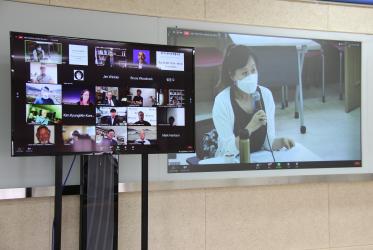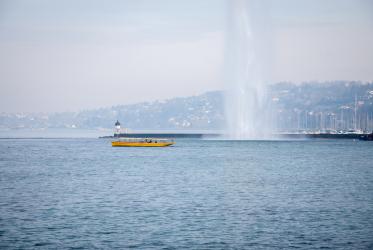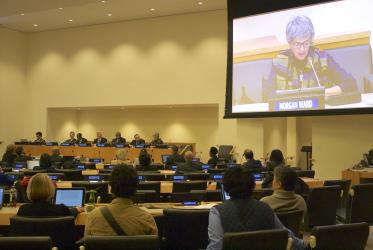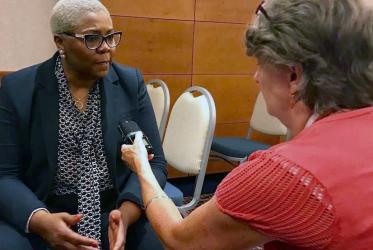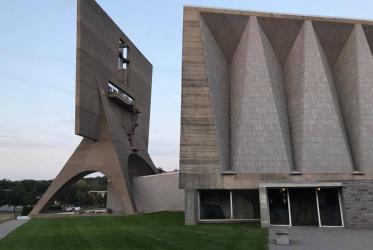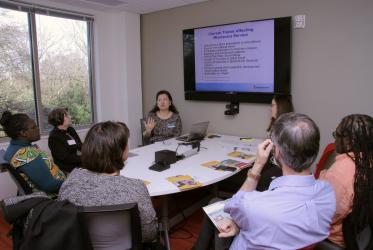Displaying 1 - 20 of 30
Rev. Traci Blackmon: people of faith must not be silent
21 September 2018
Tveit: Beyond national borders, we are one humanity
23 January 2018
Re-engineering life forms: Church forum raises concerns
09 November 2017
Dozens of countries sign nuclear weapons ban treaty
20 September 2017
Tveit: search for unity “an urgent need today”
09 September 2017
Eco-justice at stake for Standing Rock people in USA
07 November 2016



